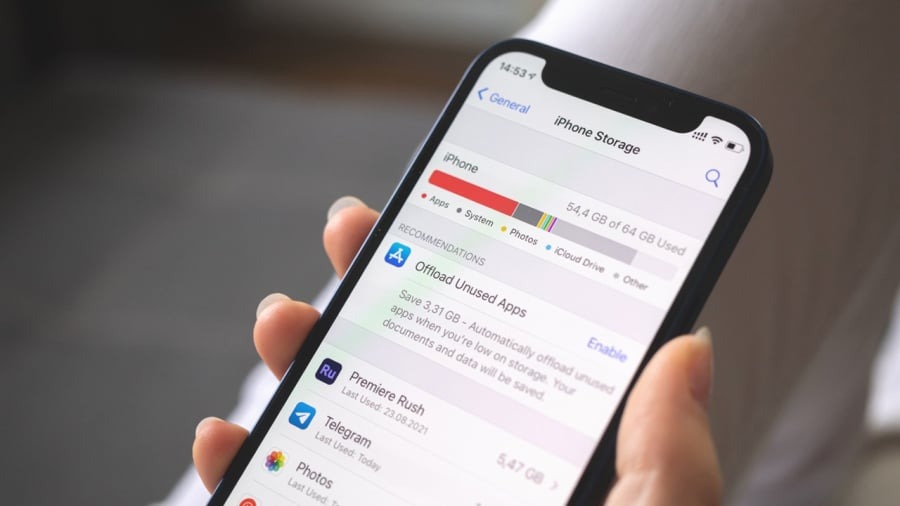Your phone’s internal memory is a treasure trove for storing personal data and frequently used apps. However, no matter how large its capacity, over time, the memory can become full, causing your device to slow down and lag. Don’t worry; the following are simple tips to help you clean up your memory quickly and effectively.
1. Uninstall Unused Applications
Having too many installed applications will fill up your memory quickly. Keep only the apps you truly need and use regularly. Uninstall the ones you don’t use to free up space, create a neater interface, and improve your phone’s performance.

2. Clear Cache Memory
While cache memory helps apps run faster, a buildup can slow down your device. You can clear the cache by following these steps:
Step 1: Go to Settings
Step 2: Choose Storage > Clear Cache (or Saved Data, depending on your phone)
This will free up significant space without affecting your personal data.
3. Delete Unnecessary Files
Old photos, videos, audio, and documents can take up a lot of space, and you may not even need them anymore. Consider:
Deleting unimportant files
Clearing out the Downloads folder
Or moving data to cloud services like Google Drive or iCloud
4. Delete Old Messages and Notifications
Messages, especially those with attachments, and old notifications can also take up memory. Consider periodic deletion or setting up automatic deletion after a certain period to keep your phone light and efficient.
5. Use an External Memory Card
If your device supports a memory card slot, take advantage of it! Move your photos, videos, and documents to a microSD card. This frees up internal memory, reduces system load, and keeps your phone running smoothly.

6. Keep Your Software Up-to-Date
Updating your operating system and apps brings new features, fixes bugs, enhances security, and improves overall performance.
7. Cloud Storage for Important Files
For important but rarely used files, consider backing them up to cloud storage services like Google Drive, Dropbox, or OneDrive. This saves memory while ensuring accessibility whenever needed.
8. Turn Off Unused Features
Features like Wi-Fi, Bluetooth, GPS, and NFC, when not in use, should be turned off to reduce memory buffer consumption and free up device resources. This also saves battery life and boosts system performance.
9. Use Memory Management Software
Consider installing memory cleaning apps like Files by Google or CCleaner, or other system management utilities, to automatically delete junk files, temporary data, and optimize performance.
Regular memory management keeps your phone stable, speeds up processing, and prolongs its lifespan. Implement these tips to keep your device light, fast, and ready to meet your daily needs.





































